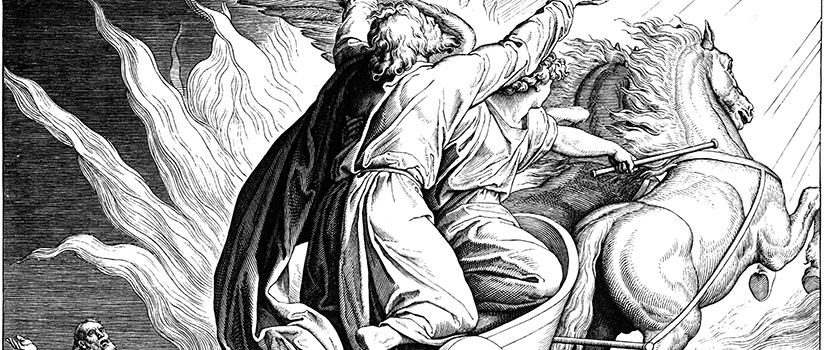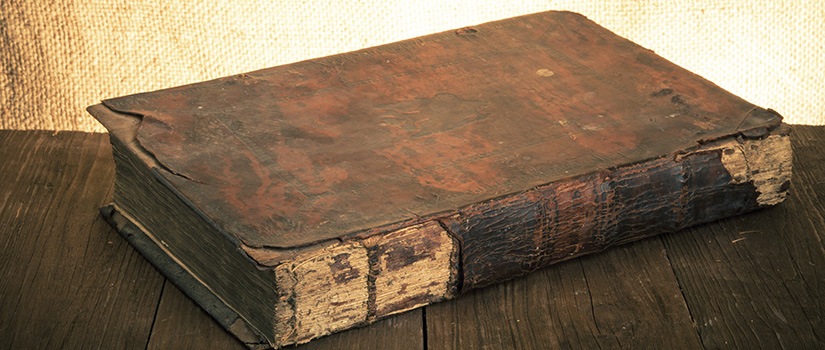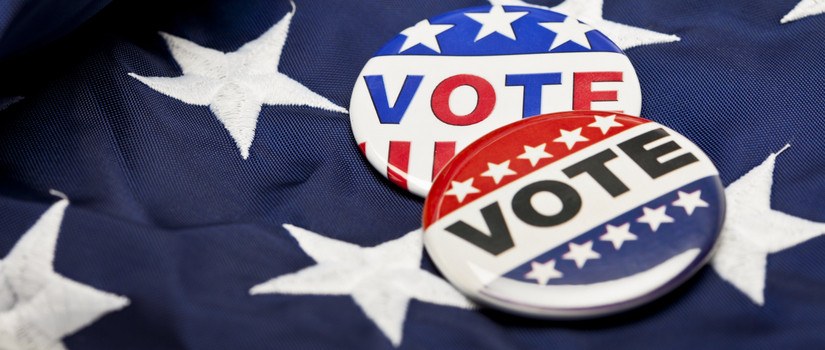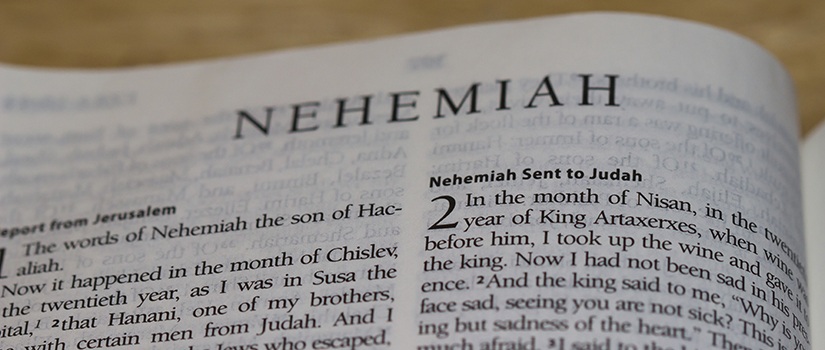This Is The Second Page Of Elijah’s Translation
~~~~Contents~~~~
10. They Two By The Jordan.
11. A Time Of Reflection. 12. Parting Of The Jordan.
13. Encouragement To Ask A Favor. 14. Elisha’s Bold Request.
15. Character Is The Best Gift. 16. A Hard Thing
17. Key To Receiving God’s Best.
On the last page we were at the point where 50 of the son’s of the prophets were standing to view what was to take place.
The position of these fifty students, is precisely the same, that so, when scattered all over the land in the following days, they may attest the fact of their master’s translation, and even under Old Testament days, have unmistakable proof that earth is not the only home of man.
10. “And They Two Stood By The Jordan:”
2 Kings 2:7b. “and they two stood by Jordan.”
It must have been late afternoon, near the close of a long day, if all took place the same day (which is doubtful), when Elijah and his trusting servant stood alone on the bank of the Jordan River. All other companionship had reverently distanced themselves from them.
The Jordan rolled its waters before their eyes as a seeming barrier to further advance. And Elisha may naturally have looked to see the final scene transacted in that sacred spot near the “heap of stones” that represented the entrance of Israel into the promise land (Joshua 4:9).
But the end was not yet. The Jordan was to be crossed, and the final scenes to take place from the plain whence Moses began his assent to Pisgah, when called by his master to leave his duties and responsibilities to Joshua, and be promoted to higher service.
11. A Time Of Reflection:
It would be well for us to reflect back over the past seven to ten years since God had directed Elijah, when he was in a state of great despondency, to anoint Elisha to take his place as prophet. (1 Kings19:16)
Though Elisha is said to have “ministered” to Elijah (1 Kings 19:21), and to have “poured water on his hands” (2 Kings 3:11), yet Elisha was far more Elijah’s friend than his servant. When they first met they were of two very different ranks, both socially and financially. Elisha was originally in a higher worldly position of the two.
The glimpse we have of Elisha in 1 Kings 19:19-21 is indicative of comfort and wealth. In education and manners he must have been equal or above Elijah.
Elisha may have somehow escaped the wrath of Ahab and Jezebel and her false prophets, while Elijah had been despised, and ridiculed, and persecuted even to the point of death threats.
Elijah was, no doubt, the elder of the two; he had, when the two met, the higher social position, being familiar with, and access to, the king’s court at a time when Elisha was merely a well-to-do farmer.
And as the recognized head of the prophetic order, Elijah had an ecclesiastical position far higher than that which Elisha occupied during his lifetime. Under the circumstances, it was natural for the attachment to be warmest on Elisha’s side.
1. Elisha showed his attachment to Elijah by his continuous ministry, and constant waiting upon the great prophet, and unceasing service, which lasted from the casting of the mantle at Abel-Meholah (1 Kings 19:19) to the ascent in the chariot and horses of fire.
2. Elisha shows it by his determination to see the last of his friend, and remain in his company as long as he possibly can.
3. Elisha shows it by his deep grief when the hour of parting comes; the exclamation from him, “My Father! My Father!” And the violent rending of his clothes into two pieces, which was something different from the usual rending of ordinary mourners.
Here we have a scriptural model for a friendship. The one, Elijah, the protector, the director, the benefactor, the teacher, the master, the guide, the other Elisha, the dependant, the scholar, the servant, the faithful devotedly attached follower, admirer, almost slave, bound together in a lifelong bond, always becoming more and more close.
This is presented to us, not merely to awaken in us a passing interest (2 Timothy 3:16), but to stir under similar circumstances to imitate.
12. The Parting Of The Jordan:
“And they two stood by the Jordan”
2 Kings 2:8a. “And Elijah took his mantle, and wrapped it together, …”
Elijah could have looked up-stream, or down-stream, for a ford, or a shallower place to wade through the waters of the Jordan. Instead he looked to a higher power to help make a path for them to cross.
Elijah took the sheep-skin cape or capote, which covered his shoulders and rolled it up, so that it in some way resembled a rod or staff. This mantle had, for many years, been the badge of the office conferred upon him by Jehovah. (1 Kings 17:1)
As a High-Way Patrolman wears a badge which represents the authority of the state, and not his own authority, but the power of the entire state of which he is charged to protect and defend, is behind it.
2 Kings 2:8b. “and smote the waters;”
Consciously imitating the act of Moses when he, “lift thou up thy rod, and stretch out thine hand over the sea,” (Exodus 14:16), and divided its waters asunder, and Joshua at the Jordan. (Joshua 3:13)
2 Kings 2:8c. “and they were divided hither and thither, so that they two went over on dry ground.”
If miracles are impossible, as some say, exegesis of Scripture, and even reading of Scripture, may as well be put aside. But if they are possible, and have a place in the Divine economy, here is a worthy occasion for them. At a time when the powers of the world were arrayed against the cause of true religion and so against God; and the cause was about to lose its great champion and assertor, Elijah; and without some manifest display of supernatural might the cause of religion would evidently have lost ground, perhaps ruined altogether.
Natural laws are fixed only till in the grasp of a higher influence, and then they become flexible, and bend, and yield. It pleased God, therefore, just at this time, to grant that signs and wonders of an extraordinary character should be done by the hands of his servants Elijah and Elisha, for a demonstration of his (Gods) glory, and for the confusion and dismay of those who were opposed to them.
“And they two went over on dry ground.”
They had visited the schools of the prophets at Bethel, at Jericho, which were both on the west side of Jordan—the side nearest Jerusalem, the side nearest Europe and America, now Elijah, accompanied by Elisha, crossed over to the other side, that is the East side of Jordan, the side nearest “that great and terrible wilderness” (Deuteronomy 1:19), and of the inhabitants of Gilead.
Why was this? Elijah was a Tishbite, brought up amid the mountains of Gilead, on the East side of Jordan. Perhaps in the distance he can see the place where he was born, and more clearly the spot where he received his summons from God and the Prophetic call.
His life had been a stormy one, and now, ere he leaves it for the peaceful life in heaven, he takes one last fond, lingering, look at his desert home on earth. The friends of youth are gone; those whom he knew in childhood have forgotten him. But by his side there is a faithful friend who forsook home and friends for his sake and the sake of the truth of God.
13. Encouragement To Ask A Favor:
2 Kings 2:9a. “And it came to pass, when they were gone over, that Elijah said unto Elisha, Ask what I shall do for thee, before I be taken away from thee.”
When Elijah and Elisha had crossed over the Jordan a yearning came over Elijah to do something for his faithful friend before he was taken away, to leave him some parting gift, some sign of his love of him, some token of his appreciation because he had stood the test of fidelity. What does his “minister” desire? Let him ask what he will, and his master will, if possible, grant it.
Elijah was not a rich man. He did not have silver and gold to bequeath. His earthly possessions consisted of only what was on his person, his sandals, his clothes, his staff, and his mantel. He had lived by what God supplied along the way. But he was one of those who could say, “as sorrowful, yet always rejoicing; as poor, yet making many rich; as having nothing, and yet possessing all things (2 Corinthians 6:10). Such as he had, he wanted to give to his friend.
Elijah probably expected Elisha to ask for a parting blessing, or some other favor which it was in his own power to grant—at most to prefer a request which God might grant through him.
Some 900 years later a greater than Elijah said to his disciples, when he was about to be taken away from them, “Hitherto have ye asked nothing in my name: ask, and ye shall receive, that your joy may be full” (John 16:24).
Later one would pen these words for our benefit, “ye have not, because ye ask not” (James 4:2). All this is given to help us to be encouraged to ask.
14. Elisha’s Bold Petition:
2 Kings 2:9b. “And Elisha said, I pray thee, let a double portion of thy spirit be upon me.”
Desire for spiritual exaltation is noble, pure, and right. Elisha was not slow to avail himself of the opportunity given. He had in view the position he would be called to occupy as the successor of Elijah, and his request took the form of a prayer for a “double portion” of Elijah’s spirit. He, like Paul, “coveted earnestly the best gifts. (1 Corinthians 12:31)
If Elisha had desired earthly possessions he, no doubt, could have returned to his home in A-bel-me-ho-lah and resumed plowing the ground of his family inheritance.
But he asked, like Solomon (1 Kings 3:5-14), not for any earthly gold or glory, but for spiritual endowment for his great office, or rather, he asked for the office itself, with all the spiritual endowments which accompanied it—for there is no reason to suppose that hitherto Elisha was a prophet, or more than the servant of a prophet.
15. Character is the best gift:
You may give your children a good education, you may store up a fortune for them, but if they have not a good character, all else is useless and worse than useless.
The spirit of Elijah — that was just what a minister of God needed then, and what the minister of the gospel needs still. The spirit of Elijah was a spirit of fidelity to duty, a spirit of faithfulness in rebuking sin, a spirit of fearlessness and courage in the presence of opposition and danger, and at the same time also a spirit of tenderness and love. Such a spirit every Christian worker should seek to possess.
And just as Elisha sought to obtain a double portion of it to qualify him for his responsible and prominent position, so also, the minister of Christ needs to be doubly endowed with the Spirit of God. He who would lead and teach others must be doubly spiritual, doubly wise, doubly careful, doubly holy, doubly zealous and scrupulous for the honor and cause of Christ.
The spirit of Elijah was needed then, and it is needed still. The sins of his time are the sins of our own time. There are the same immorality, the same covetousness, the same forgetfulness of God, the same absorption in the concerns and pleasures of the present world.
We need more men with the spirit of Elijah, who will be faithful to God and conscience at any cost, who will rebuke sin in high places and in any place — the sins of royalty and rank as well as the sins of the poor.
How much indecision and worldliness and timidity and timeserving there are on the part of many professing Christians!









